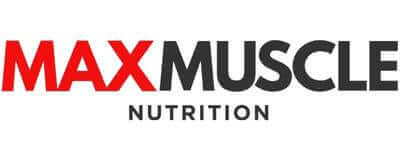Hello, fitness enthusiasts and coaches!
Today, we're diving into a topic that's crucial yet often overlooked in the athletic world: Overtraining Syndrome (OTS) and the process of aerobic detraining. As a seasoned certified strength and conditioning coach and former professional athlete, I've seen firsthand how balancing training intensity and recovery is key to an athlete's success. Let's break down the strategies to prevent OTS, understand the phases of overtraining, and discuss how to avoid detraining.
Understanding Overtraining: The Phases and Their Characteristics
Overtraining is a continuum of responses to excessive training without adequate recovery. It's like pushing a car beyond its limits without proper maintenance. Here are the main phases:
-
Functional Overreaching (FOR): This is like revving the engine for a short period. Athletes undergo intensified training, which, if followed by adequate recovery and tapering, can lead to performance boosts. It's a strategic move often used before competitions.
-
Nonfunctional Overreaching (NFOR): Imagine pushing beyond the red line for too long. This phase involves extended periods of excessive training beyond FOR, leading to a significant drop in performance. Recovery can take weeks to months.
-
Overtraining Syndrome (OTS): This is the red flag zone. OTS causes a substantial drop in performance, with altered nervous system and immune function. Recovery can take months, and it's a state you definitely want to avoid.
The Biological Responses to Aerobic Overtraining
When we talk about aerobic overtraining, the body shows several responses:
- Cardiovascular: Decreased heart rate variability and lowered maximum heart rate during exercise.
- Biochemical: Elevated creatine kinase levels, changes in lactate concentrations, and decreased muscle glycogen content.
- Endocrine: Changes in testosterone levels, growth hormone secretion, and epinephrine and norepinephrine responses.
These responses are like warning lights on your car's dashboard, indicating that something's off balance.
Strategies for Preventing OTS
Preventing OTS is about maintaining that sweet spot in training. Here are some key strategies:
- Proper Nutrition: Fueling the body correctly is non-negotiable. It's the foundation of recovery and performance.
- Sufficient Sleep and Recovery: Think of sleep as your body's repair time. Quality rest is as important as the training itself.
- Variety in Training: Mixing up intensity and volume helps prevent monotony and overuse injuries.
- Performance Records: Keeping track of performance helps identify early signs of OTS.
- Multidisciplinary Approach: Having a team including a coach, physician, nutritionist, and psychologist ensures all aspects of the athlete's well-being are addressed.
Aerobic Detraining: Avoiding the Backslide
Detraining occurs when there's a significant reduction in training load, leading to a loss of aerobic conditioning. It's like taking your foot off the gas pedal for too long. Coaches can prevent detraining by:
- Gradual Reduction in Training Load: Instead of abrupt stops, gradually reduce the intensity and volume.
- Cross-Training: Incorporate different forms of exercise to maintain general fitness levels.
- Regular Monitoring: Keep an eye on key performance indicators to adjust training as needed.
Final Thoughts
Balancing training and recovery is an art. As coaches and athletes, our goal is to push limits while respecting our bodies' need for rest and recovery. By understanding and implementing these strategies, we can help athletes achieve their peak performance without falling into the traps of overtraining or detraining.
Remember, fitness is a journey, not a sprint. Let's train smart and stay healthy!
Call to Action:
Share this blog with fellow athletes and coaches, and if you're looking for more personalized advice, don't hesitate to visit our Max Muscle Sports Nutrition store. We're here to support your fitness journey with expert advice and top-notch supplements. Stay strong and train smart!
Mike Pringle
Max Muscle Sports Nutrition - Stone Mountain

